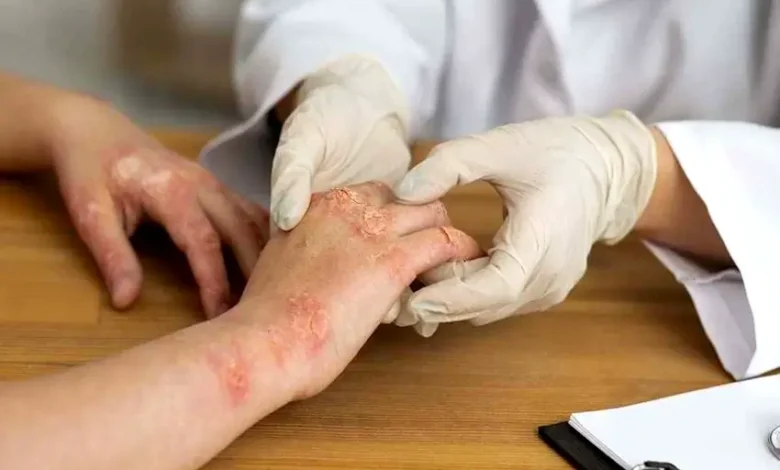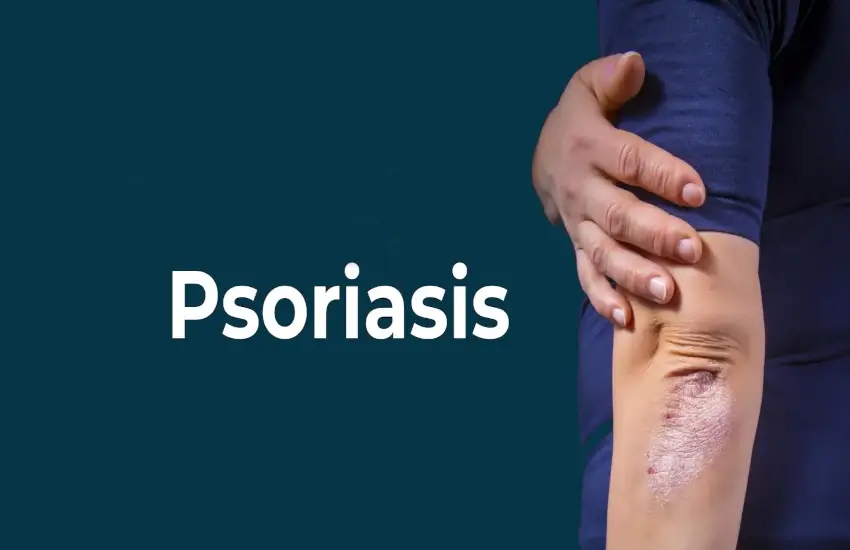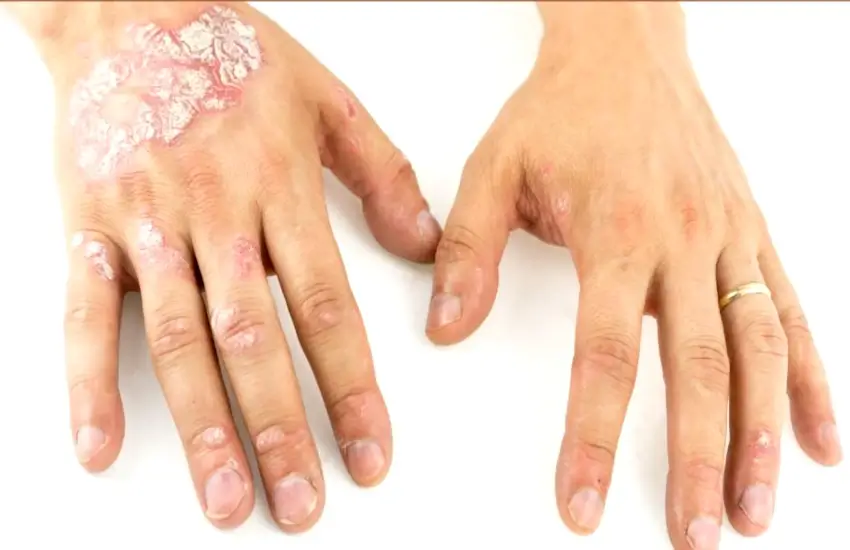Understanding Psoriasis – Symptoms, Types, and Treatments

Psoriasis is more than just a skin problem it’s a chronic autoimmune condition that impacts millions worldwide. It causes red, scaly patches that can pop up anywhere on the body. But what’s happening under the surface? Psoriasis accelerates the life cycle of skin cells, leading to a buildup of cells on the skin’s surface. Let’s dive deeper into the types, triggers, symptoms, and how you can manage them.
Understanding Psoriasis – Symptoms, Types, and Treatments
This disease is a chronic condition that affects the immune system. In simple terms, your body’s defense system goes into overdrive, mistakenly attacking healthy skin cells. This leads to the rapid production of new cells, which pile up on the skin’s surface, forming distinctive red, scaly patches.
The Role of the Immune System
Think of your immune system as an overzealous guard dog it’s supposed to protect you, but sometimes it gets confused. With psoriasis, this confusion results in inflammation and skin cell buildup.
How Skin Cells are Affected?
In healthy skin, cells are replaced every 28–30 days. In psoriasis, this process speeds up to 3–4 days, leaving dead cells on the surface.
Common Types of Psoriasis
Not all these diseases psoriasis look the same. Here are the five main types:
Plaque Psoriasis
This is the most common type. It shows up as raised, red patches covered with silvery-white scales, often on the scalp, elbows, and knees.
Guttate Psoriasis
Usually triggered by infections like strep throat, this type appears as small, drop-shaped lesions. It’s more common in children and young adults.
Inverse Psoriasis
Found in skin folds, like under the breasts or around the groin, this type is often shiny and smooth rather than scaly.
Pustular Psoriasis
This rare form involves white pustules surrounded by inflamed, red skin. It can be localized to specific areas or spread across the body.
Erythrodermic Psoriasis
The most severe type, erythrodermic this disease is causes widespread redness, scaling, and intense pain. It requires immediate medical attention.
Symptoms of Psoriasis
Skin Symptoms
- Red patches of skin covered with thick, silvery scales.
- Dry, cracked skin that may bleed or itch.
Nail Symptoms
- Thickened, pitted, or ridged nails.
- Nails separating from the nail bed, sometimes accompanied by discoloration.
Triggers and Risk Factors
Understanding what triggers this disease can help you manage flare-ups.
Environmental Triggers
Cold weather, infections, and skin injuries like cuts or sunburns can worsen symptoms.
Lifestyle Factors
Stress and certain medications (like beta-blockers) are common triggers.
Genetic Predisposition
If this disease runs in your family, your chances of developing it are higher. However, environmental factors often play a role too.
Search for health: Health benefits of Fasting, Pilates For Health, and Is Strep Throat Contagious.
Treatment Options for Psoriasis
While there’s no cure, treatments can manage symptoms effectively.
Topical Treatments
- Corticosteroids: Reduce inflammation.
- Vitamin D analogs: Slow skin cell growth.
- Moisturizers: Keep the skin hydrated and less itchy.
Phototherapy
Controlled exposure to UV light can reduce symptoms for some people. It’s like giving your skin a mini spa day under medical supervision.
Systemic Medications
For severe cases, oral or injectable medications can target the immune system to reduce inflammation.
Lifestyle Adjustments
Adopting a healthy diet, managing stress, and avoiding known triggers can significantly improve quality of life.
Living with Psoriasis
Managing this disease isn’t just about treatments it’s about embracing a new normal.
Emotional Impact
Living with a visible condition can take a toll on your mental health. Don’t hesitate to seek emotional support or talk to a therapist.
Support and Community
Joining support groups can be life-changing. Sharing experiences with others who truly understand can make the journey easier.
Conclusion
Psoriasis might not have a cure, but it doesn’t have to define your life. With the right treatments, lifestyle changes, and support, you can keep symptoms under control and live comfortably. Remember, understanding your condition is the first step toward managing it. For more health visit our website Media Music Mania.
FAQs
1. Can psoriasis go away completely?
No, psoriasis is a chronic condition. However, treatments can help control and even minimize symptoms.
2. Is psoriasis contagious?
Not at all! You can’t catch it from someone else.
3. What foods should I avoid if I have psoriasis?
Foods that cause inflammation, like processed foods and sugar, might worsen symptoms. A healthy, balanced diet can help.
4. Can stress worsen psoriasis?
Absolutely. Stress is a common trigger, so managing it is crucial for controlling flare-ups.
5. Are natural remedies effective for psoriasis?
Some natural remedies, like aloe vera or oatmeal baths, may help soothe symptoms, but they should complement medical treatments not replace them.









